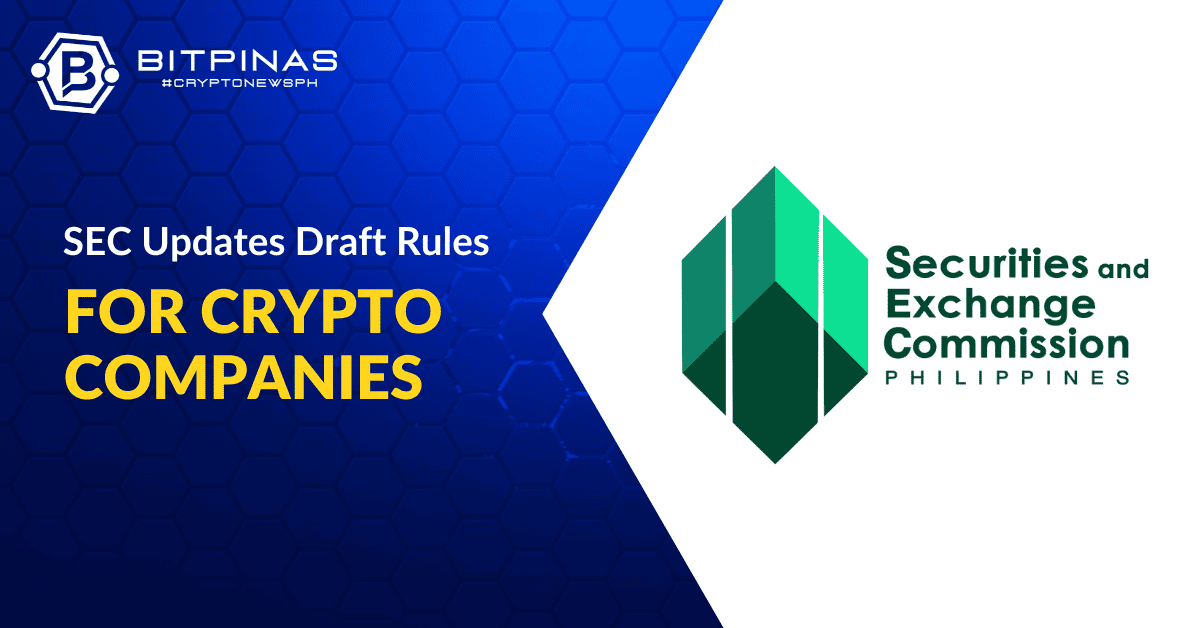More than two months since the Securities and Exchange Commission (SEC) first released the draft of its own Crypto-Asset Service Provider (CASP) rules, the Commission recently unveiled its second draft, which notably added a rule on exemption from registration and removed marketing regulations.
Registration Exception
In the prior draft, there was no provision for exemption, and every CASP license applicant was expected to register under the rules:

Section 3 of the new draft introduces “Exemption from Registration” as a new provision. It authorizes the SEC to issue a registration exemption for CASPs, upon application, if it aligns with public interest and ensures investor protection.
- Some companies or services that would normally have to go through full CASP registration can now apply for an exemption
- This adds regulatory flexibility that wasn’t in the 2024 draft.
Marketing Rules Removal
While there are additions, there are also rules that were written out in the new draft. The previous rules included detailed consumer protection measures aimed at preventing misleading crypto ads and holding CASPs accountable for promotional activities. However, the new draft removes these specific marketing and advertising provisions entirely—there is no equivalent to the former Section 7. The new guidelines do not directly regulate how CASPs can advertise or promote their services.
While the 2025 draft includes a general “business conduct” clause requiring CASPs to act fairly and honestly, it doesn’t detail specific advertising obligations:

Previously, Section 7 of the draft included any offer, inducement, endorsement, solicitation, promotion or advertisement—across all media types.
- Only registered CASPs or their authorized third-party service providers could conduct marketing or promotional activities.
- Examples of Covered Activities
- Promotional content, sponsored materials and influencer posts
- Social media activity (posts, blogs, comments), videos, podcasts, live streams
- Events that promote CASP activities or crypto-asset usage
- Ads, editorials, branded merchandise
- Airdrops (giving or transferring crypto-assets)
- Educational materials like articles, tutorials and presentations
- Clarity and Transparency Required:
- Marketing must use plain, clear and concise language.
- Must accurately describe the product or service and disclose all associated risks.
- Marketing should not be misleading in substance or presentation.
- CASP Accountability:
- CASPs are responsible for the actions of their directors, employees and agents.
- CASPs share liability with third-party marketers for any misconduct.
- Third-Party Disclosure Requirement:
- CASPs must report to the SEC a list of all authorized third-party marketing partners.
- The list must include names, contact details and methods used for promotion.
In a BitPinas webcast on January 8, crypto lawyer Atty. Rafael Padilla voiced his support for the draft rules on marketing and promotion of crypto-assets and emphasized that the rules aim to protect investors from misleading promotions, especially those disguised as educational content.
However, the crypto lawyer also stressed that some parts of the previous draft may unintentionally hinder local Web3 projects by restricting grants from global blockchain companies, especially through broad marketing provisions.
StratBox for CASPs
In addition, on April 11th, the SEC also announced that it has opened applications for participation in the SEC Strategic Sandbox (StratBox) specifically tailored for CASPs. The initiative aims to protect investors while also encouraging responsible innovation.
“This thematic StratBox focuses on entities engaged in or intending to engage in Crypto-Asset Services. This includes, but is not limited to, cryptocurrency exchanges, virtual asset custodians, and other related service providers. Notwithstanding the thematic focus on crypto-asset services, the Commission will consider applications from entities with business models in other financial sectors,” the SEC wrote.
In 2024, the Commission already introduced the StratBox, a regulatory sandbox that allows fintech and crypto firms to test innovative financial services with potential regulatory relief, aiming to boost innovation, competition and financial inclusion in the digital economy.
New CASP rules
The revised draft now requires a ₱100 million paid-up capital and detailed compliance documentation. Moreover, the new guidelines introduce stricter operational standards, such as cyber resilience, local data centers and regular reporting, while also banning leveraged trading and unauthorized derivatives.
Stakeholders can send their feedback on the draft until April 26, 2025, via email to fintech@sec.gov.ph or by submitting hard copies to the SEC’s PhiliFintech Innovation Office in Makati.
Read the full report here: SEC New Draft Crypto Rules Adds ₱100M Capital Requirement, Registration Exemptions
Also check out the January draft here: Full Text: Draft Proposal on “SEC Rules on Crypto-Assets Service Providers”
Reactions and Comments:
This article is published on BitPinas: New PH SEC Draft Guideline Lets Some Firms Skip Crypto Asset Service Provider Registration
What else is happening in Crypto Philippines and beyond?



